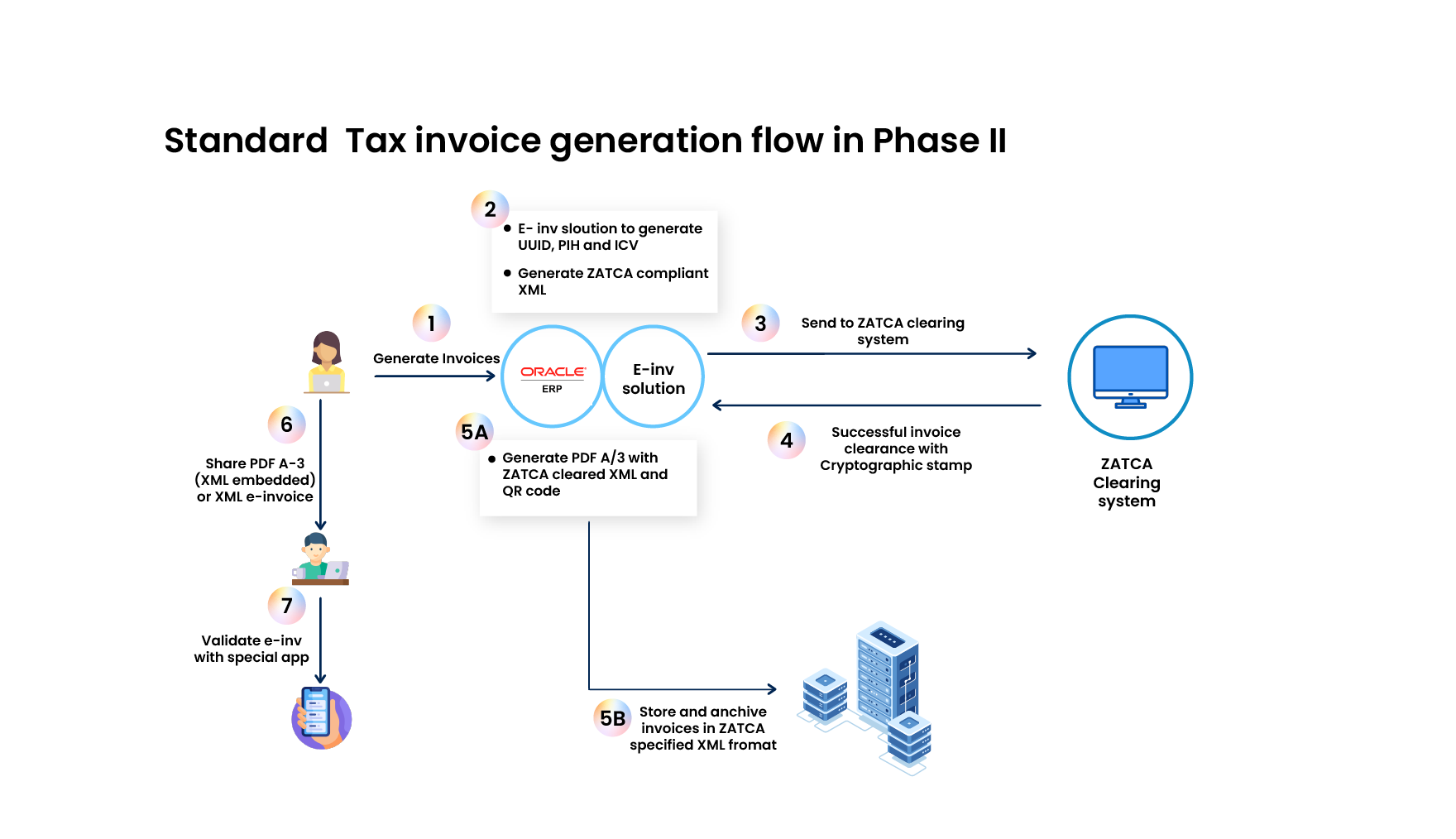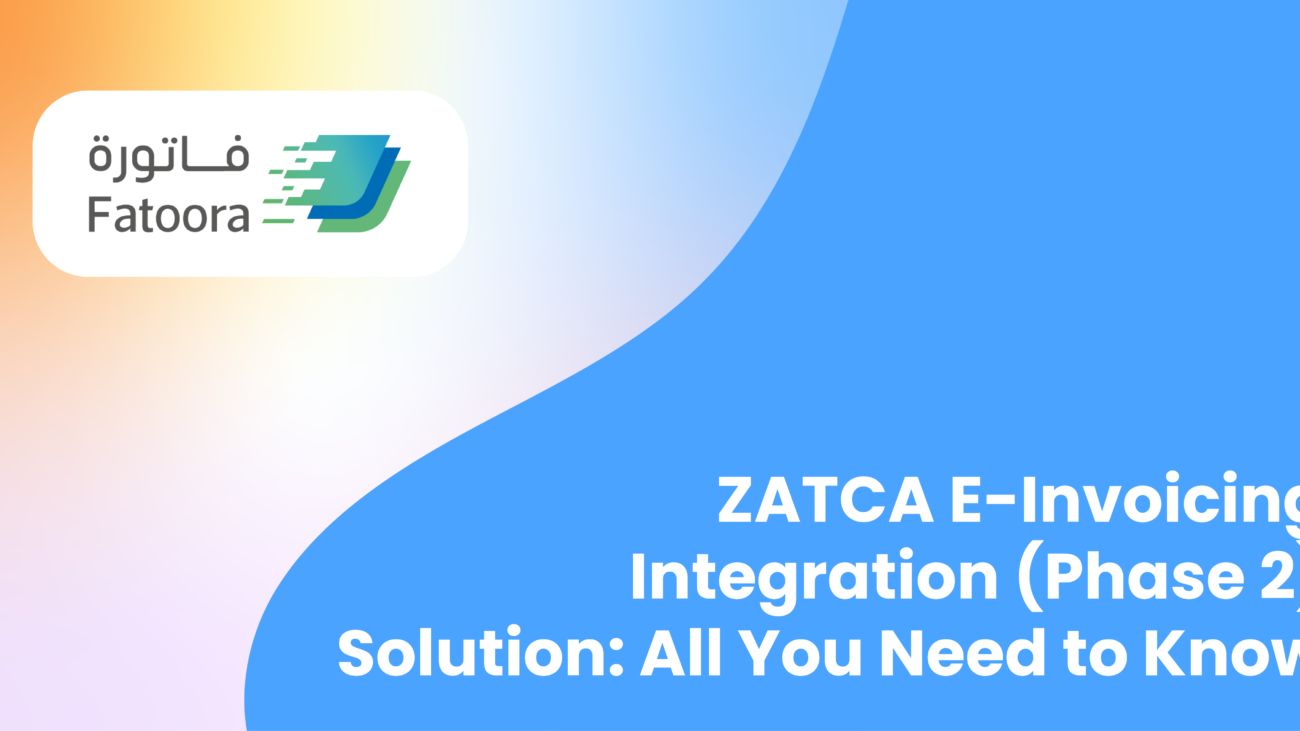What is E-Invoicing (FATOORAH)?
Electronic invoicing is a procedure that aims to convert the issuing of paper invoices and notes into an electronic process that allows the exchange and processing of invoices, credit notes & debit notes in a structure electronic format between buyer and seller through an integrated electronic solution.
What is an electronic invoice?
A tax invoice that is generated in a structured electronic format through electronic means. A paper invoice that converted into an electronic format through coping, scanning, or any other method is not considered an electronic invoice.
Types of E-Invoices
Tax Invoice
An invoice that is usually issued by a Business to another Business (B2B), containing all tax invoice elements.
Simplified Tax Invoice
An invoice that is usually issued by a Business to consumer (B2C) containing all simplified tax invoice elements.
Guidelines for e-invoicing in KSA
The e-invoicing provisions will apply to all taxable goods and services that are subject to VAT (whether standard or zero rate).
All VAT-registered business owners (except non-resident taxable people) within KSA who make sales within and outside KSA have to adopt the e-invoicing process. If you are a third party in KSA issuing a tax invoice on behalf of a taxable person, you will have to adopt the e-invoicing process too. For instance, an accounting firm that issues invoices on behalf of a textile seller would be responsible for these regulations.
E-invoicing is mandatory for all B2B, B2G, and B2C transactions. While issuing an e-invoice to a buyer, you should provide a printed copy as well.
The invoices have to be in Arabic. You may opt to translate them or add another language, but it is mandatory to issue the e-invoice in Arabic.
How does E-Invoicing (FATOORAH) work?
The Zakat, Tax and Customs Authority (ZATCA) in the Kingdom of Saudi Arabia (KSA) has rolled out regulations mandating businesses to adopt an e-invoicing process in two phases, starting on December 4, 2021.
For Phase 1, all taxpayers (excluding non-resident taxpayers), and any other parties issuing tax invoices on behalf of suppliers subject to VAT, electronic invoice issuance will be very similar to invoices generated prior to 4 Dec 2021, with invoices issued through a compliant electronic solution and including additional fields depending on the type of the transaction.
For Phase 2, enforceable starting January 1st, 2023 in waves, the electronic solution must be integrated with ZATCA’s systems and e-invoices should be generated in the required format.
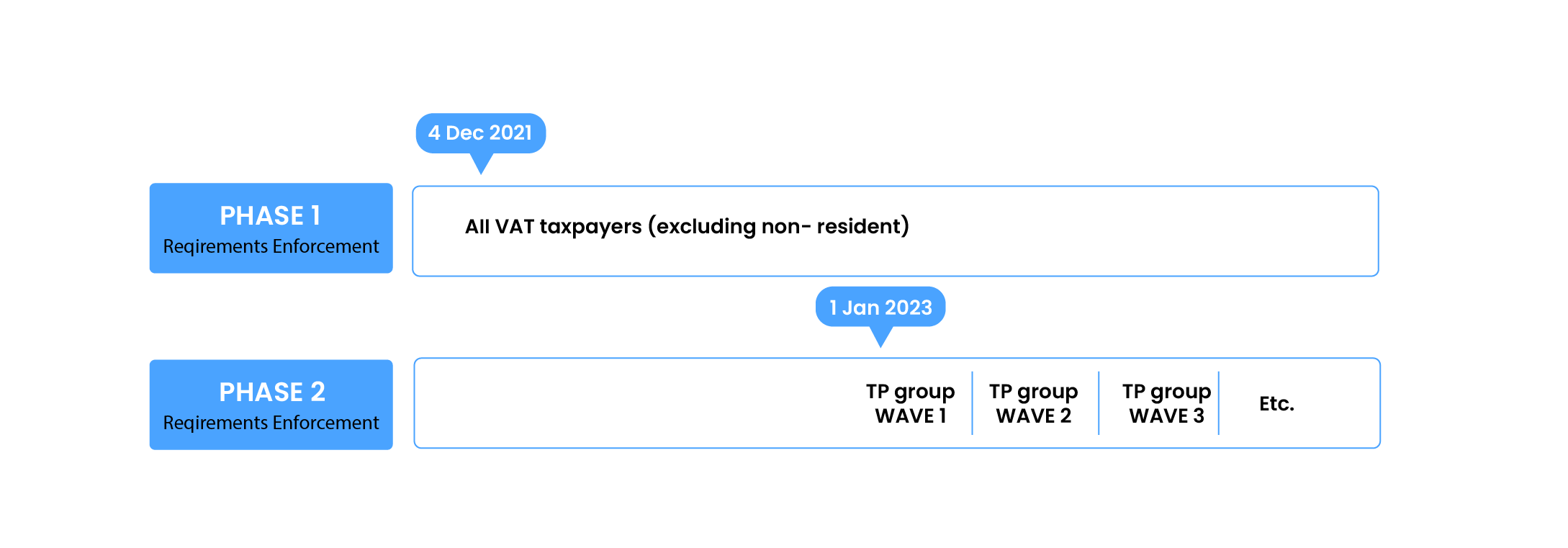
Phase 2 is further broken down into Waves based on Annual Revenue slabs.
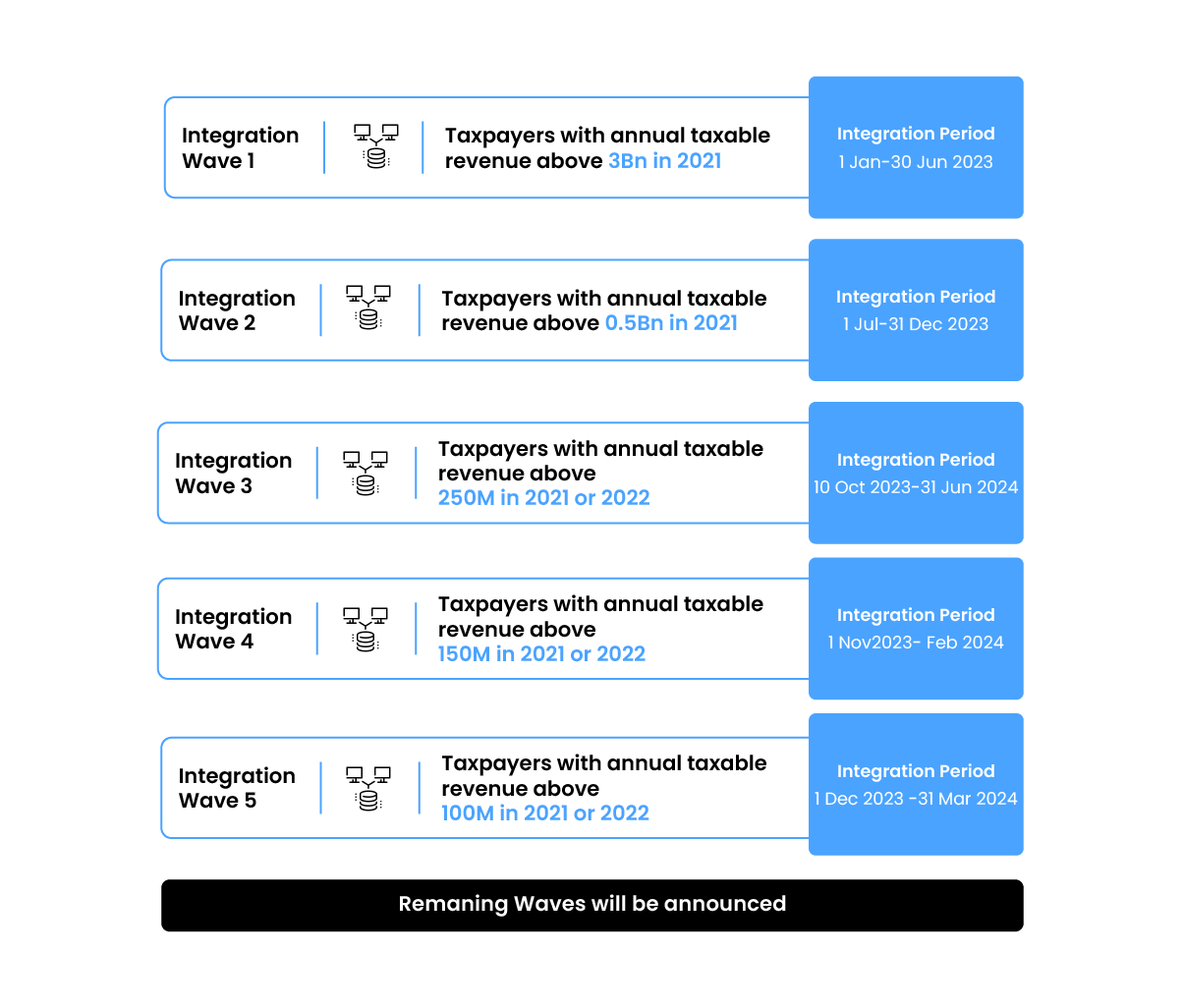
Key Differences between Phase 1 and Phase 2:
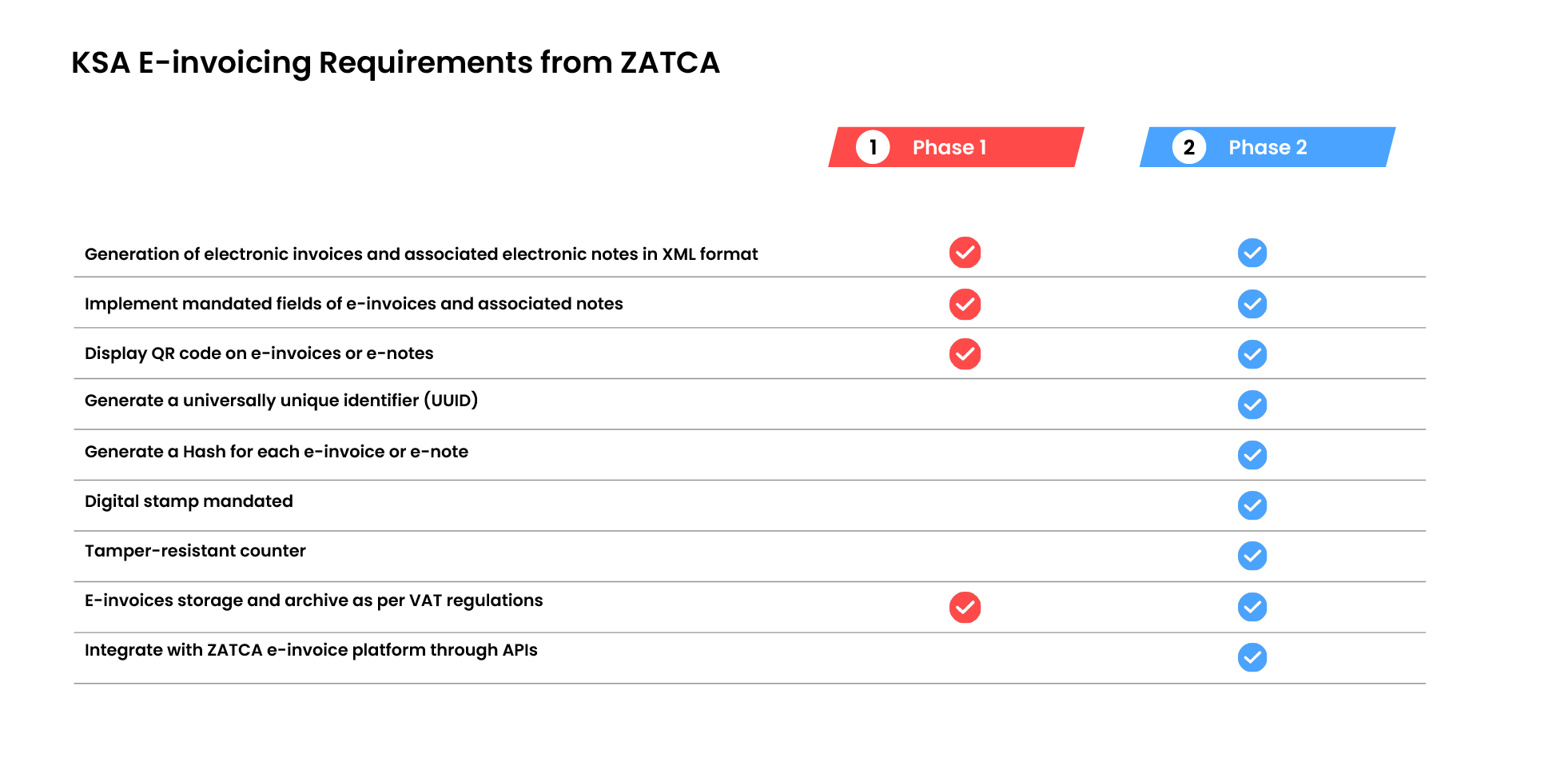
What does ECS has to offer?
We, at ECS, have designed a comprehensive hassle-free solution, specifically for Oracle ERP, that will help you seamlessly integrate with the FATOORAH portal as per ZATCA Phase 1 and 2 regulations.
ECS offers a comprehensive custom-made solution that can cater to all your needs, be it B2B or B2C.
ECS Oracle – ZATCA Integration Solution is custom developed by our experts from Oracle CoE, and is designed to give you an end-to-end automated process covering everything from Invoice Generation to Compliance check to XML file storage to Clearance and e-delivery of PDF Invoices to end customers.
Irrespective of your Business type, be it B2B or Retail, our Solution will have you covered on both.
Key Benefits:
- Quick n Easy Generation: With robust APIs, e-Invoices can be generated in seconds or even quicker
- Analytics & Reporting: Get detailed reports indicating which invoices are cleared / have warning / errored.
- Custom Invoice Templates: We provide built-in compliance-friendly Invoice templates (including Arabic language). Existing templates can also be customized.
- No Additional Costs: We offer a comprehensive solution that does not include any hidden / additional costs for Infrastructure, Network, Operational etc
